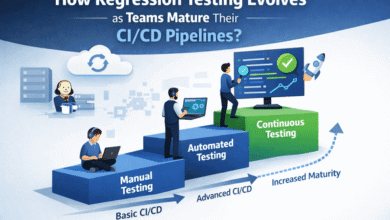The Power of Data Management Software: Why Businesses Need It in the Digital Era

In today’s fast-paced digital world, data has become one of the most valuable assets for organizations. Every business, whether a small startup or a global enterprise, generates and processes vast amounts of information daily. However, the real challenge lies not in collecting data but in managing it effectively. This is where data management software steps in as a game-changing solution. From storing and securing information to ensuring accessibility and compliance, it plays a crucial role in driving efficiency, decision-making, and growth.
What is Data Management Software?
Data management software refers to tools and systems designed to collect, store, organize, protect, and analyze data. These platforms streamline data handling processes, ensuring businesses can use information accurately and efficiently. Unlike manual methods or scattered storage solutions, modern data management software centralizes information, making it accessible to authorized teams across departments.
Some of the key functions include:
-
Data Integration – Combining data from multiple sources into a unified system.
-
Data Governance – Ensuring accuracy, consistency, and compliance with regulations.
-
Data Security – Protecting sensitive information against cyber threats.
-
Data Accessibility – Allowing teams to retrieve and share data seamlessly.
-
Analytics Support – Enabling advanced reporting and insights.
Why Businesses Need Data Management Software
Businesses face a data overload today. Customer transactions, sales metrics, employee records, marketing insights, and supply chain information create massive volumes of structured and unstructured data. Without the right software, this can quickly lead to inefficiencies, errors, and missed opportunities.
Here are some key reasons why investing in data management software is essential:
1. Improved Data Accuracy
Data inaccuracies can cost businesses heavily. With automated validation, cleansing, and error detection, the software ensures that information remains reliable for decision-making.
2. Stronger Security
Cyberattacks and data breaches are increasing worldwide. Advanced software solutions provide encryption, access controls, and monitoring features to safeguard sensitive business information.
3. Better Compliance
Regulations like GDPR, HIPAA, and CCPA demand strict data protection practices. Data management platforms help organizations maintain compliance by ensuring transparency and proper usage of data.
4. Enhanced Productivity
Instead of wasting hours searching for scattered files, employees can access structured and centralized data quickly. This reduces delays and improves overall operational efficiency.
5. Data-Driven Decision Making
Businesses rely on accurate insights for forecasting, marketing, and customer service. With built-in analytics and reporting, data management software empowers leaders to make informed decisions backed by real-time information.
Features to Look for in Data Management Software
Not all solutions are created equal. When choosing the right data management software, organizations should look for these must-have features:
-
Cloud Integration – Flexible and scalable access from anywhere.
-
User-Friendly Interface – Easy adoption across teams without technical barriers.
-
Data Migration Tools – Simplifies moving existing data into new systems.
-
AI and Automation – Automates repetitive tasks like sorting and tagging.
-
Scalability – Supports growing volumes of data as the business expands.
-
Advanced Security Protocols – Protection against internal misuse and external threats.
Popular Use Cases of Data Management Software
Different industries utilize these tools in diverse ways:
-
Healthcare – Storing patient records securely while complying with HIPAA.
-
Retail – Analyzing customer purchases to optimize inventory.
-
Finance – Managing transactions, fraud detection, and regulatory compliance.
-
Education – Organizing student data, performance tracking, and e-learning analytics.
-
Marketing – Tracking customer behavior for targeted campaigns.
The Future of Data Management Software
With artificial intelligence, machine learning, and big data technologies advancing rapidly, the future of data management software looks highly promising. Intelligent automation will further reduce human errors, while predictive analytics will help businesses anticipate trends. Moreover, the rise of cloud computing and hybrid data systems will make these platforms more accessible to organizations of all sizes.
Conclusion
In an age where data is the foundation of business growth, investing in data management software is no longer optional—it’s a necessity. From improving accuracy and ensuring compliance to boosting security and decision-making, the right solution can transform how organizations operate. Whether you’re a small business looking to streamline records or a large enterprise dealing with complex datasets, data management software offers the tools needed to stay competitive in today’s data-driven economy. With artificial intelligence, machine learning, and big data technologies advancing rapidly, the future of data management software looks highly promising. Intelligent automation will further reduce human errors, while predictive analytics will help businesses anticipate trends. Moreover, the rise of cloud computing and hybrid data systems will make these platforms more accessible to organizations of all sizes.
Businesses face a data overload today. Customer transactions, sales metrics, employee records, marketing insights, and supply chain information create massive volumes of structured and unstructured data. Without the right software, this can quickly lead to inefficiencies, errors, and missed opportunities.




